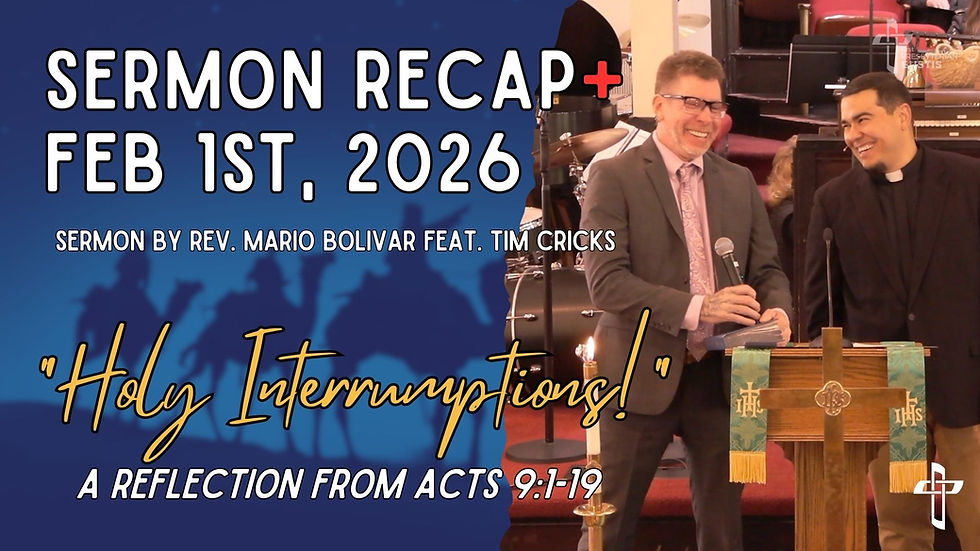Love the Sinner, Hate the Sin.
- Mario Bolivar
- Jan 24, 2023
- 3 min read
I cannot tell you how many times I have heard this from a good-minded Christian with the best intentions. You wouldn't believe how often I have let it go without inserting myself in the conversation because I know how deep and rooted such things are that you cannot effectively deal with them on the aisle of a Publix. So, since I couldn't say something then, let me say something today for my heart's sake.
It would help if you were careful about such statements; they mean more than you think… Why? Because while the most significant subject of Jesus' ministry was "Love the Lord your God with all your heart and with all your soul and with all your mind.' and 'Love your neighbor as yourself." Matt. 22: 37; 39. The most prominent sub-theme was for people of faith to stop being such hypocrites. Matt. 7: 5
"Love the Sinner, Hate the Sin" is somewhat rooted in Scripture. See Jude 1: 22-23. So, I get it. However, you should be careful with such statements because human beings cannot love perfectly, meaning loving sacrificially "agape," and we cannot hate perfectly either, meaning without malice and without being corrupted, absorbed, and even fascinated by the hate we give.
Talk about how much, how often and how long we can love people who are different than us; that we will run out of time to talk about hate. Hate is just a waste of time.
In the statement "Love" always comes first, yet we move too quickly away from it, which is at the center of the issue with the "Love the Sinner, Hate the Sin" suggestion. We go from first (Love) to second (Hate) like we are Tris Speaker, and the worst thing is that we stay there, like the second base is "THE" Homeplate. --- Hate is just too much of a fire for us to play with it.
To talk about Jude 1:22-23, I believe the encouragement is more about not participating, encouraging, and supporting the Sin of people and less about fostering the feeling of "Hate," which opens the door to Satan. Moreover, Jude says that the goal is to run all the bases to reach unbelievers, but it is unacceptable to be drawn into their immorality. Much like Jesus did when He reached out with the message of forgiveness to the most sinful members of society (Mark 2:15–17) but did not participate in their Sin (Hebrews 4:15). Nor did He approve of it (John 8:11)
"Love the sinner, hate the sin." Is the "Yes, of course, I love you, but … And off we go on the judgment train." Furthermore, "Hate the Sin" allows us to hold others accountable, judge them as if we were God, and then feel justified and righteous about it. Let us remember what Jesus himself clarified "Do not judge others, and you will not be judged. For you will be treated as you treat others. The standard you use in judging is the standard by which you will be judged." See Matt. 7:1-2
So, let us deal with Sin without hate by recognizing it for what it is, refusing to take any part of it, and condemning it as contrary to God's nature. Sin is not to be excused or taken lightly. Or, if nothing else… consider the words of Mark Lowry… Love the sinner, hate the Sin? How about loving the sinner? Hate your own Sin! I don't have time to hate your Sin. There are too many of you! Hating my Sin is a full-time job. How about you hate your Sin? I'll hate my Sin, and let's just love each other!





Comments